Retracing the evolution of Miss Universe crowns through the years
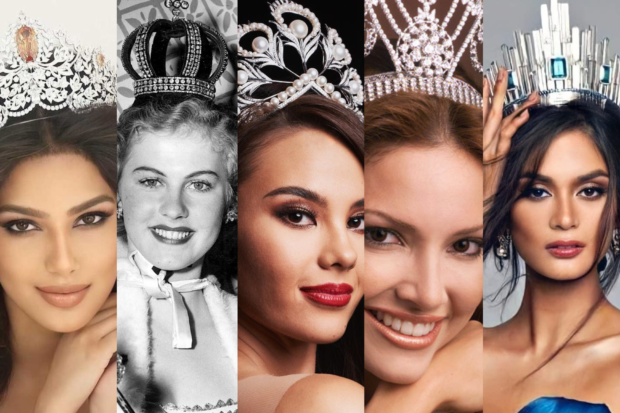
Miss Universe titleholders (From left) Harnaaz Sandhu (2021), Armi Kuusela (1952), Catriona Gray (2018), Denise Quiñones (2001), Pia Wurtzbach (2015) Images: Facebook/Miss Universe
The queen who wears the Miss Universe crown shall bear its weight — especially its longstanding history when it comes to empowering women.
Since the pageant’s establishment in 1952, there have been 12 crowns that symbolize the essence of a woman at her rawest form. Each crown represents royalty that stood the test of time, as well as the representation of the winning delegate’s grace and beauty.
Allow us to revisit the history of the Miss Universe crowns from past to present:
The Romanov Imperial nuptial crown (1952 to 1953)
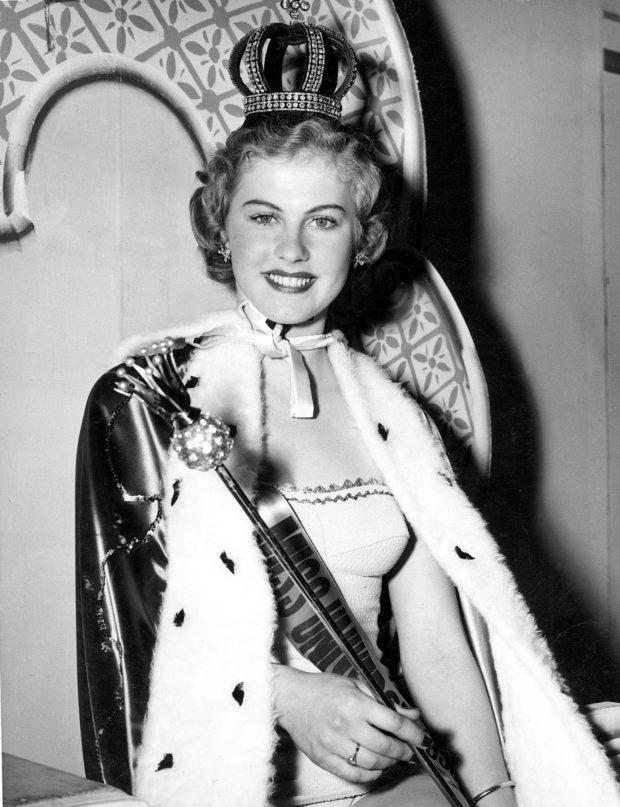
Miss Universe 1952 Armi Kuusela of Finland. Image: Miss Universe/Facebook
The Romanov Imperial nuptial crown, worn by Armi Kuusela of Finland in 1952, comes from a royal bloodline as it was owned by a Russian czar. The pageant’s crown was said to be composed of 1,500 diamonds, including 320 cushion cut diamonds weighing approximately 182 carats, according to a report from gemology website Marie Bettely.
The crown was also believed to have been worn by former empress consort Alexandra Feodorovna on her wedding day to Nicholas II of Russia.
The Christiane Martel crown (1953 to 1954)
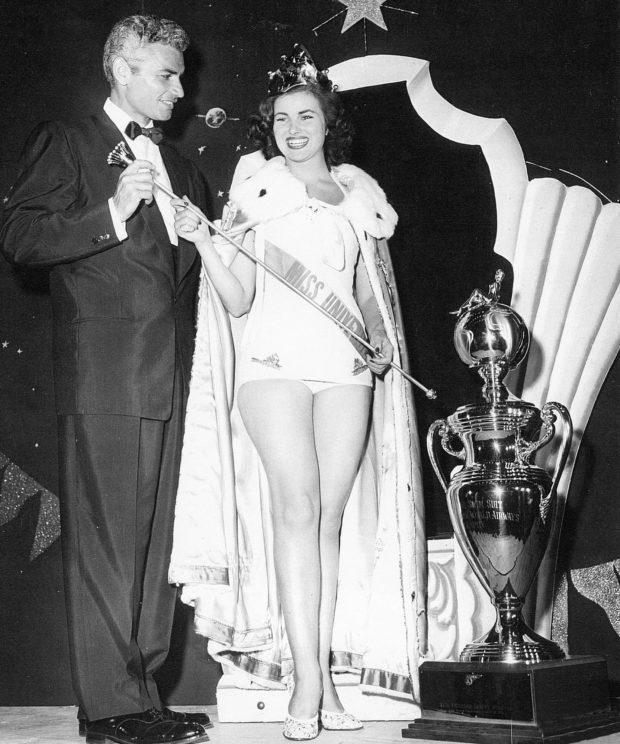
Miss Universe 1953 Christiane Martel of France. Image: Facebook/Miss Universe
The Romanov Imperial nuptial crown was replaced by the metallic bronze headpiece in the following year, which was worn by Christiane Martel of France. Similar to its predecessor, the French lass was the only Miss Universe winner to wear its second crown.
The Christiane Martel crown did not have any crystals, gemstones, or rhinestones unlike the other pageant headpieces. Instead, it features a solid design in the shape of a crown.
The Star of the Universe crown (1954 to 1960)
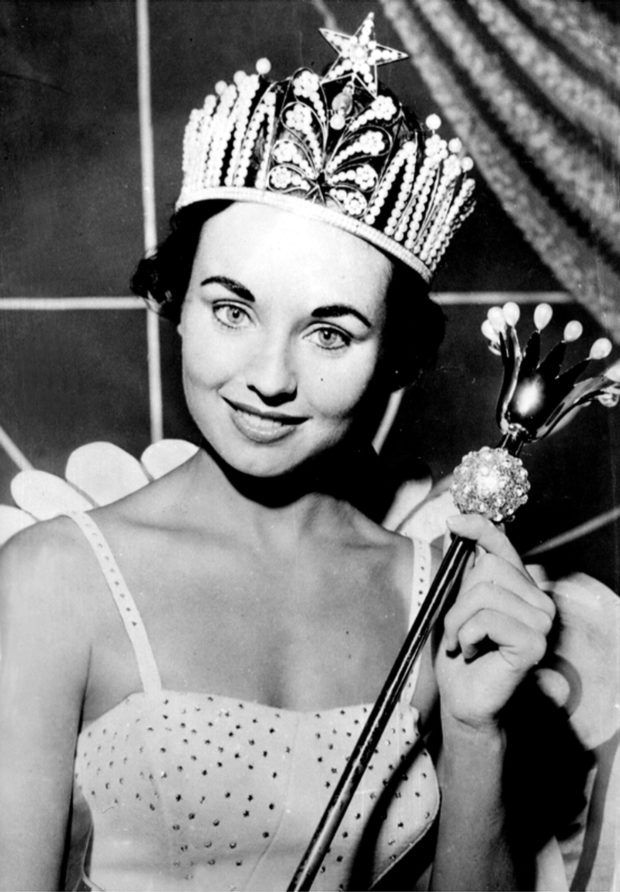
Miss Universe 1956 Carol Morris of United States. Image: Facebook/Miss Universe
Weighing at 1.25 pounds, the Star of the Universe crown was the first headpiece to be designed specifically for Miss Universe. The crown is composed of approximately 1,000 oriental cultured and black pearls set in solid gold and platinum; and is said to be valued at $500,000 (P27.4 million).
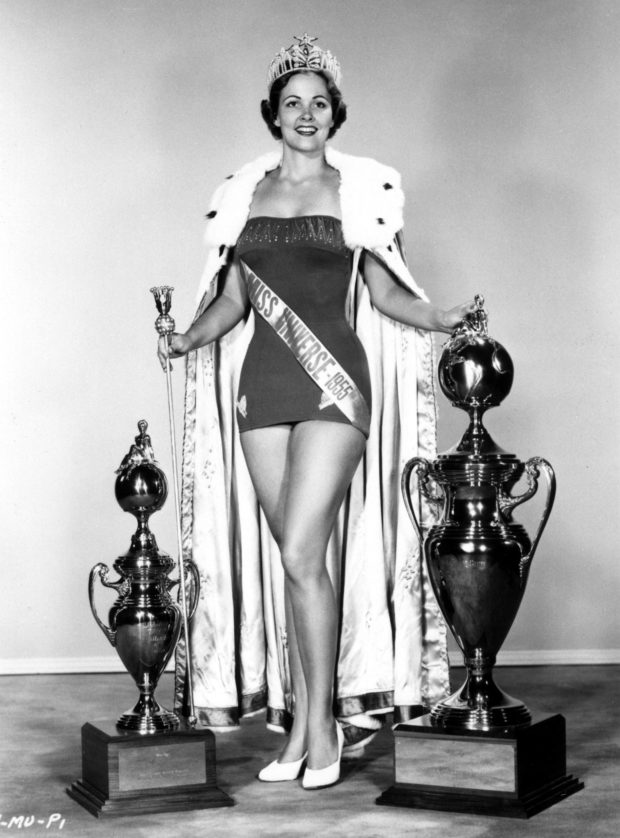
Miss Universe 1954 Miriam Stevenson of United States. Image: Twitter/@MissUniverse
The Star of the Universe crown was worn by Miriam Stevenson of United States (1954), Hillevi Rombin of Sweden (1955), Carol Morris of United States (1956), Gladys Zender of Peru (1957), Luz Marina Zuluaga of Colombia (1958), Akiko Kojima of Japan (1959), and Linda Bement of United States (1960).
The Lady Rhinestone crown (1961 to 1962)
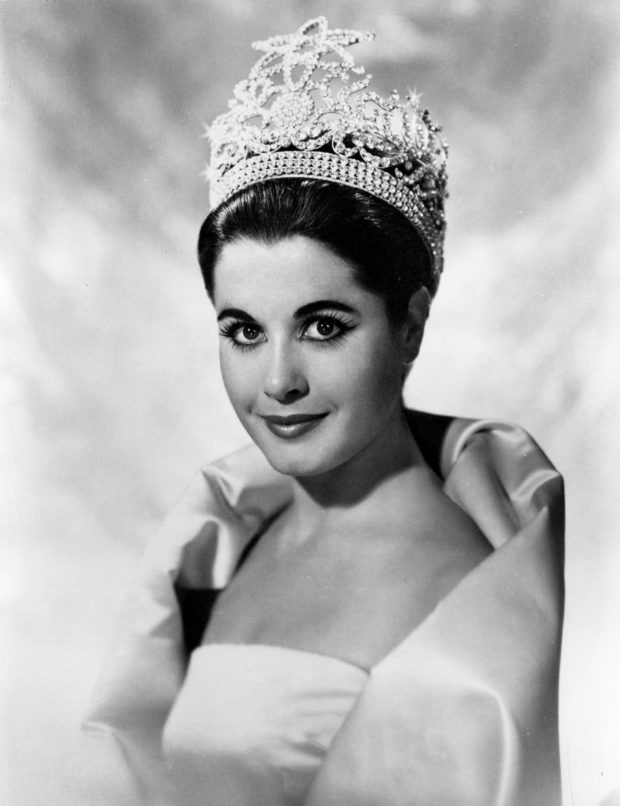
Miss Universe 1962 Norma Nolan of Argentina. Image: Facebook/Miss Universe
The Miss Universe Organization (MUO) wanted to have a special crown to commemorate its 10th anniversary thus the birth of the Lady Rhinestone crown in 1961. The crown is adorned completely with rhinestones as well as a large star in the center. This piece marks the first time that a rhinestone crown was introduced to the public.
Only two Miss Universe titleholders had the privilege of wearing the rhinestone crown, namely, Marlene Schmidt of Germany (1961) and Norma Nolan of Argentina (1962).
The Sarah Coventry crown (1963 to 1972)
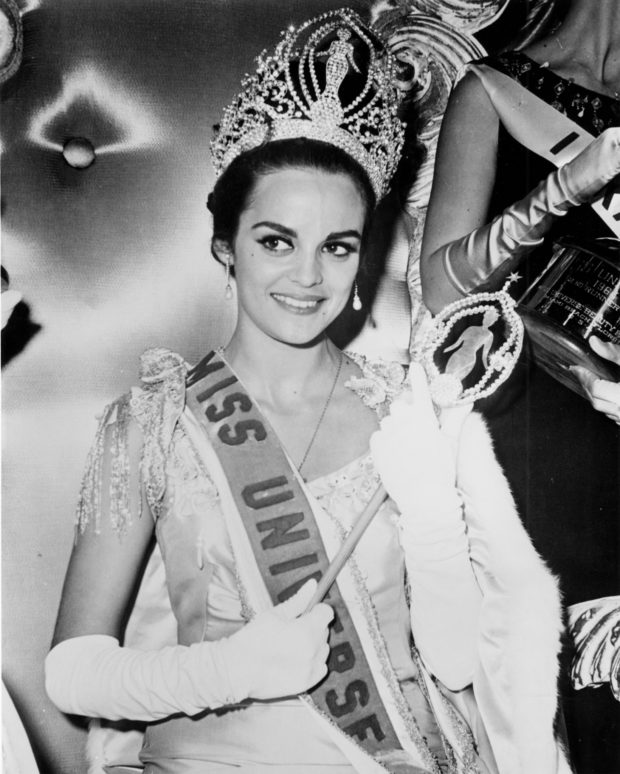
Image: Facebook/Miss Universe
Perhaps, the pageant’s most famous crown is the headpiece designed by world-renowned jeweler Sarah Coventry in 1963. It was responsible for the pageant crown’s well-known design — featuring a female figure holding a scepter.
Miss Universe 1963 Ieda Maria Vargas of Brazil was the first winner to use the crown, followed by Corinna Tsopei of Greece (1964), Apasra Hongsakula of Thailand (1965), Margareta Arvidsson of Sweden (1966), Sylvia Hitchcock of United States (1967), Martha Vasconcellos of Brazil (1968), Marisol Malaret of Puerto Rico (1970), Georgina Rizk of Lebanon (1971), and Kerry Anne Wells of Australia (1972).
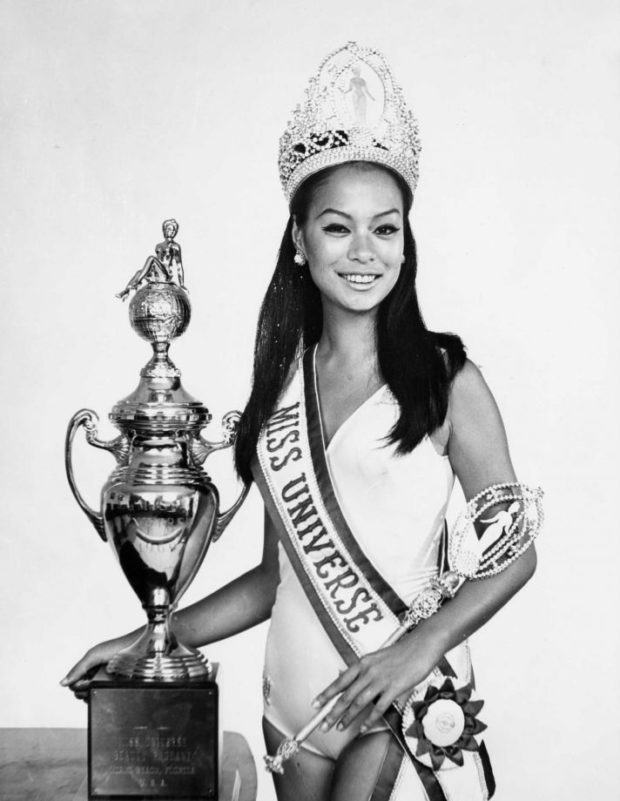
Miss Universe 1969 Gloria Diaz of the Philippines. Image: Facebook/Miss Universe
The Philippines’ own Gloria Diaz also wore the Sarah Coventry headpiece when she was crowned in 1969.
The Chandelier crown (1973 to 2001)
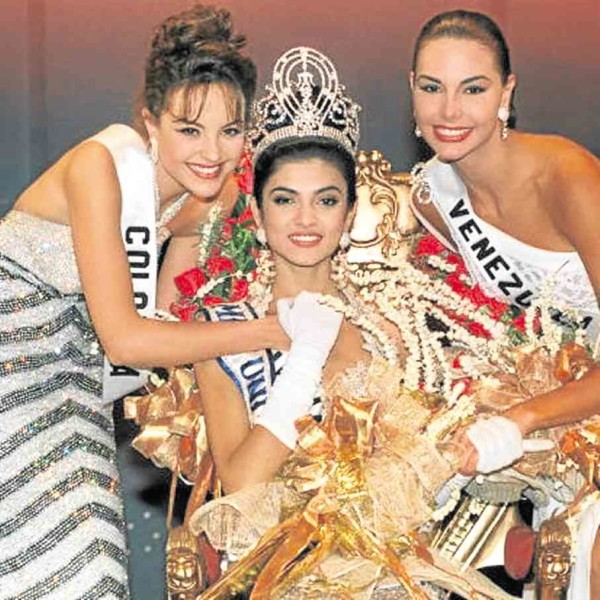
Miss Universe (center), with Colombia’s Carolina Gomez (left) and Venezuela’s Minorka Mercado
A slightly altered version of the Sarah Coventry crown, the MUO introduced the Chandelier headpiece in 1973. The original crown was altered to accommodate the different head sizes of the winning queens.
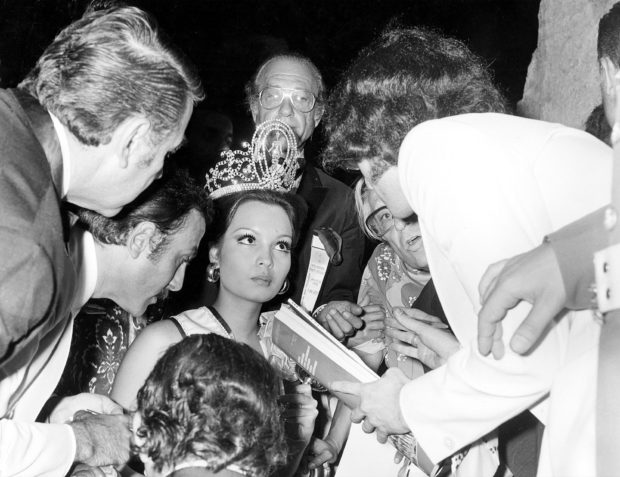
Miss Universe 1973 Margarita Moran of the Philippines. Image: Twitter/@MissUniverse
The first Miss Universe titleholder to wear the altered Sarah Coventry crown was the Philippines’ Margie Moran in 1973, and was last worn by Denise Quiñones of Puerto Rico in 2001. The crown was replaced by the Mikimoto crown in 2002, which marked the end of tradition.
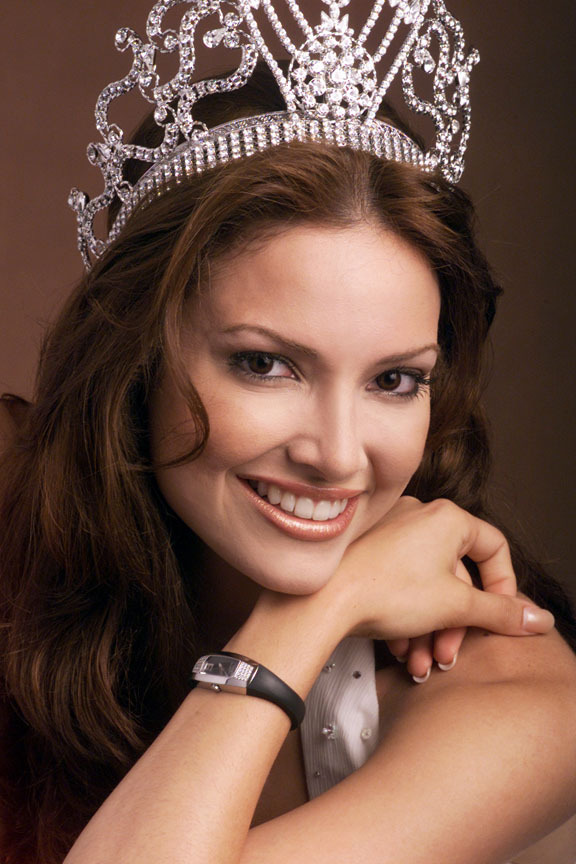
Miss Universe 2001 Denise Quiñones of Puerto Rico. Image: Facebook/Miss Universe
Notable winners who also had the privilege of wearing the crown were Dayanara Torres of Puerto Rico (1993), Sushmita Sen of India (1994), Wendy Fitzwilliam of Trinidad and Tobago (1998), and Lara Dutta of India (2000).
The Mikimoto crown (2002 to 2007; 2017 to 2018)
The Mikimoto crown marks the first headpiece created under a sponsorship deal, which was designed by Japanese jeweler Mikimoto. The crown is composed of approximately 500 diamonds of almost 30 carats and 120 South Sea and Akoya pearls in different sizes.
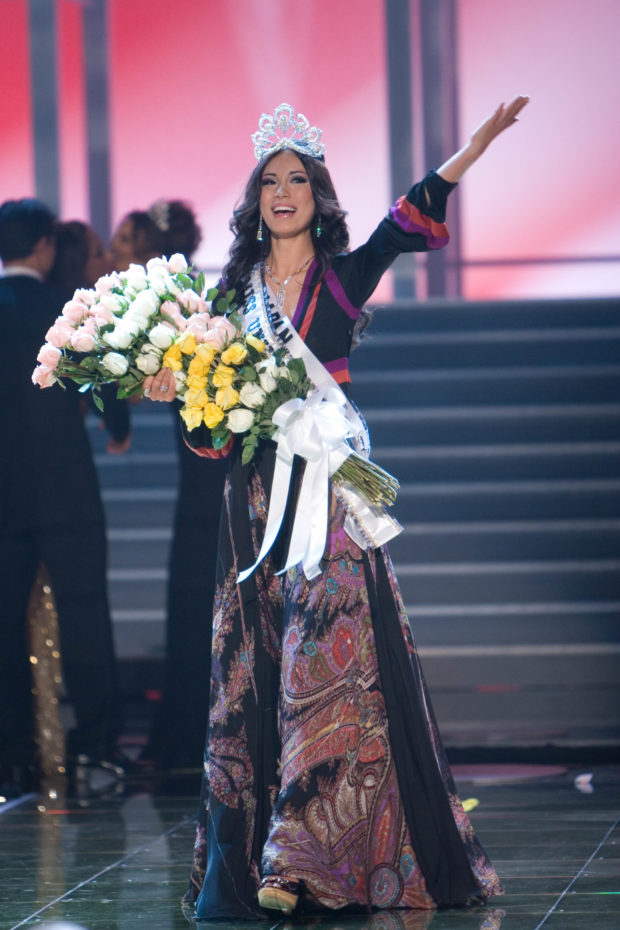
Miss Universe 2007 Riyo Mori of Japan. Image: Twitter/@MissUniverse
The headpiece was described by the MUO as a “phoenix rising” which symbolizes status, power, and beauty. Despite the crown’s intricate design, it was considered to be a source of “bad luck” by some pageant fans. Months after being crowned with this piece, Oxana Federova of Russia was the first winner to be dethroned.
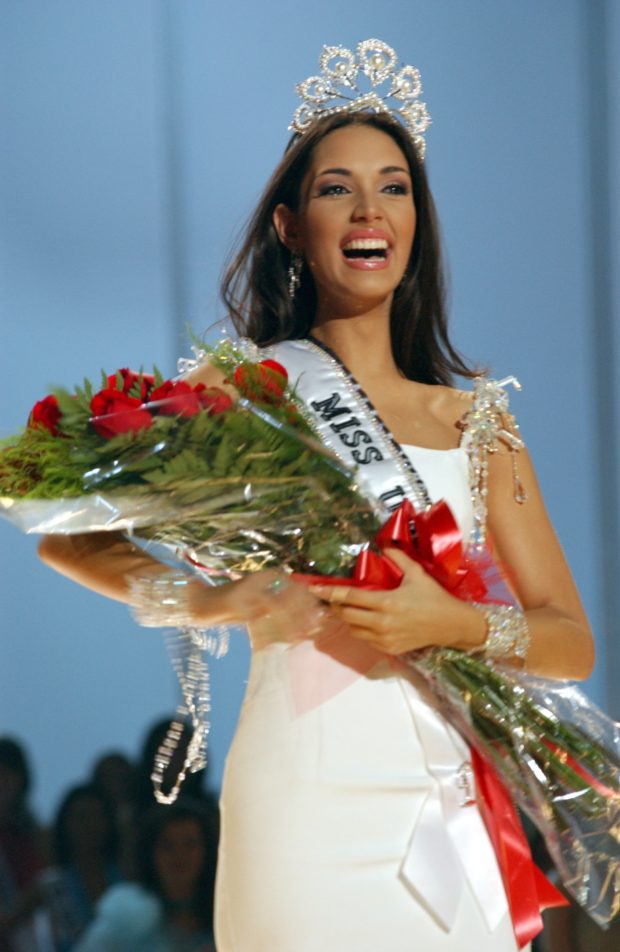
Miss Universe 2003 Amelia Vega of Dominican Republic. Image: Twitter/@MissUniverse
Federova, Justine Pasek of Panama (2002), Amelia Vega of Dominican Republic (2003), Jennifer Hawkins of Australia (2004), Natalie Glebova of Canada (2005), Zuleyka Rivera of Puerto Rico (2006), and Riyo Mori of Japan (2007) were some of the titleholders who wore the crown.
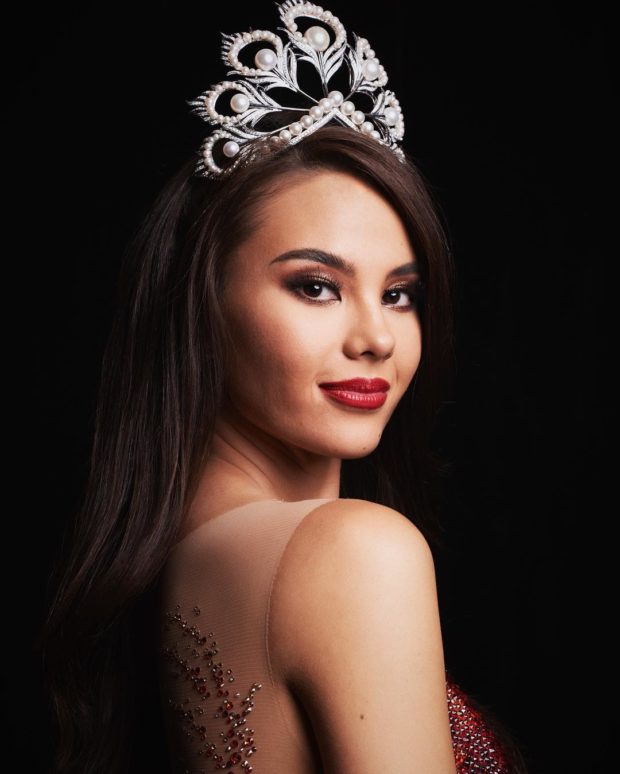
Miss Universe 2018 Catriona Gray of the Philippines. Image: Facebook/Miss Universe
The Mikimoto design made a brief comeback in 2017 where Demi-Leigh Nel-Peters of South Africa won. Her successor, Philippines’ Catriona Gray, also had the distinction of wearing the crown in 2018.
The CAO Fine Jewelry crown (2008)
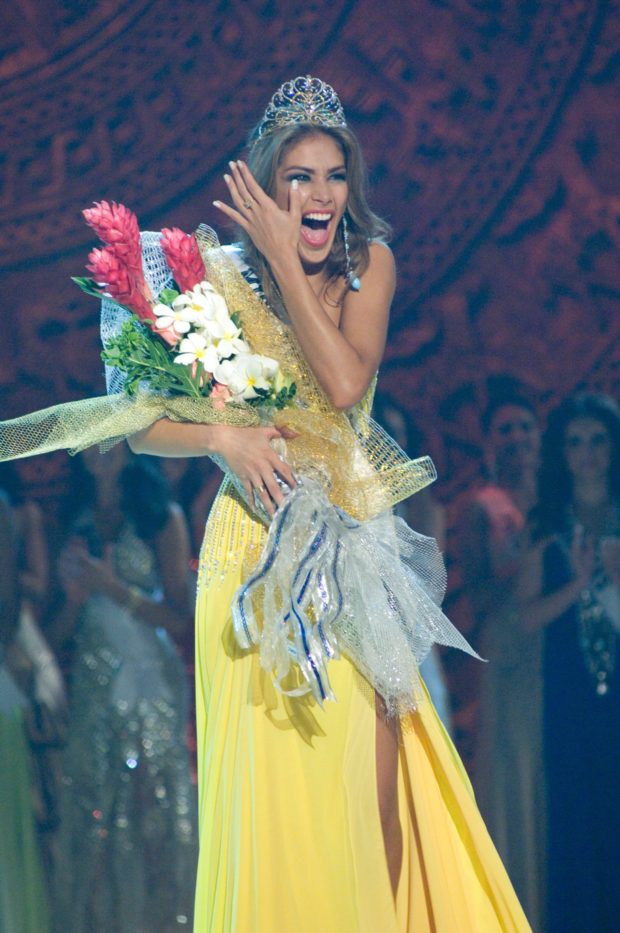
Miss Universe 2008 Dayana Mendoza of Venezuela. Image: Twitter/@MissUniverse
The CAO Fine Jewelry crown was worn once by Miss Universe 2008 Dayana Mendoza of Venezuela. Designed by Vietnamese jeweler CAO Fine Jewelry, the cognac-colored crown is composed of 18-carat white and yellow gold and approximately 1,000 precious stones.
The Peace crown (2009 to 2013)
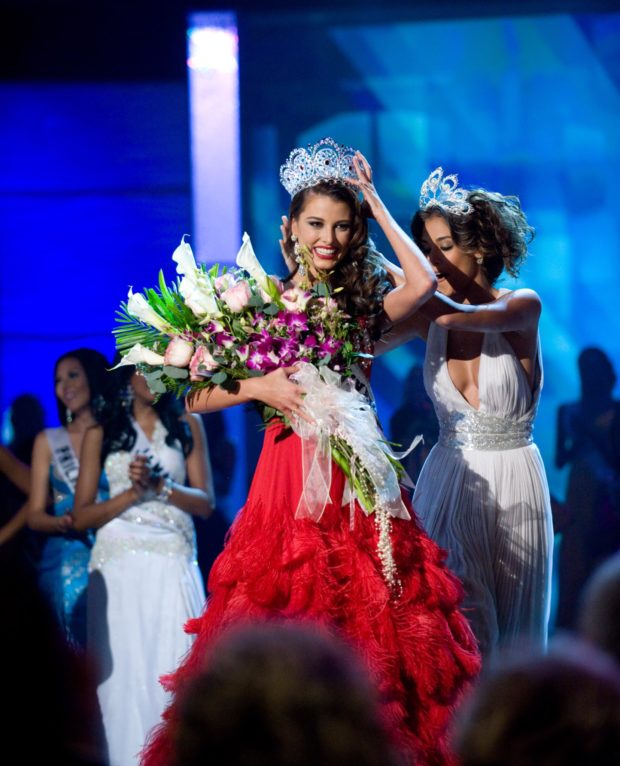
Miss Universe 2009 Stefania Fernandez of Venezuela. Image: Twitter/@MissUniverse
The Peace crown, designed by Diamond Nexus Labs, was first introduced by the MUO as an eco-friendly crown in 2009. The dramatic headpiece is composed of approximately 1,300 gemstones, 14K and 18K white gold, and platinum; as well as rubies that represent the pageant’s HIV/AIDS education and awareness cause.
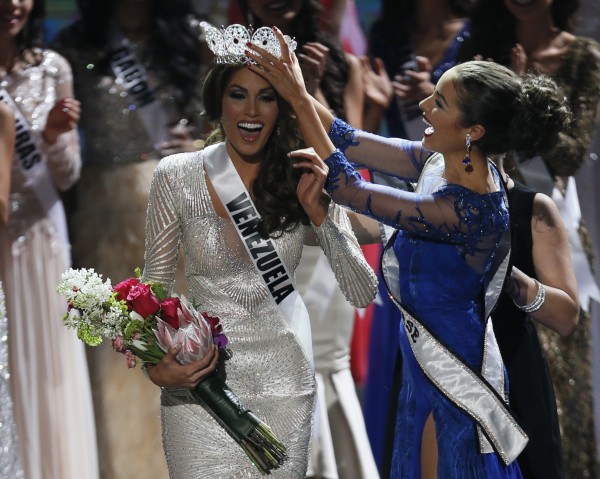
Miss Universe 2012 Olivia Culpo, from the United States, right, places the crown on Miss Venezuela Gabriela Isler during the 2013 Miss Universe pageant in Moscow, Russia, on Saturday, Nov. 9, 2013. (AP Photo/Pavel Golovkin)
Stefania Fernandez of Venezuela was the first titleholder to wear the crown in 2009, followed by Ximena Navarrete of Mexico (2010), Leila Lopes of Angola (2011), Olivia Culpo of United States (2012) and lastly, Gabriela Isler of Venezuela in 2013.
The DIC crown (2014 to 2016)
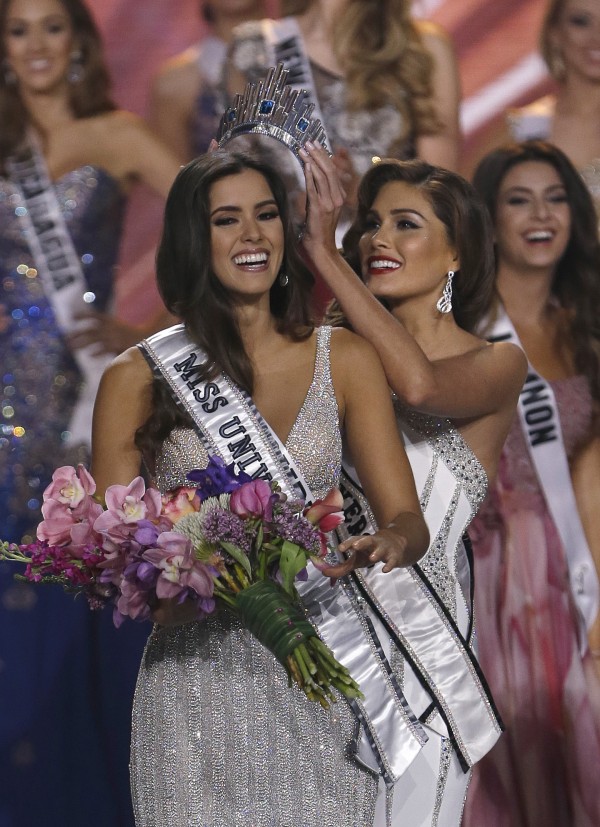
Reigning Miss Universe Gabriela Isler, right, crowns the new Miss Universe, Paulina Vega of Colombia, left, during the Miss Universe pageant in Miami, Sunday, Jan. 25, 2015. AP
Another popular crown among pageant fans, the Diamond International Corporation (DIC) crown is reminiscent of the Manhattan skyline as homage to the home of the MUO. The headpiece was designed by the DIC, and is described as a symbol of beauty, stability, confidence, and the power of women.
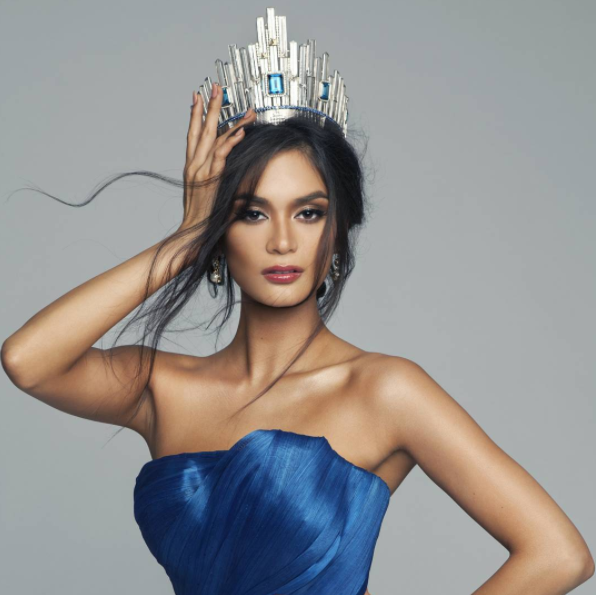
Miss Universe 2015 Pia Wurtzbach of the Philippines. Image: Facebook/Miss Universe
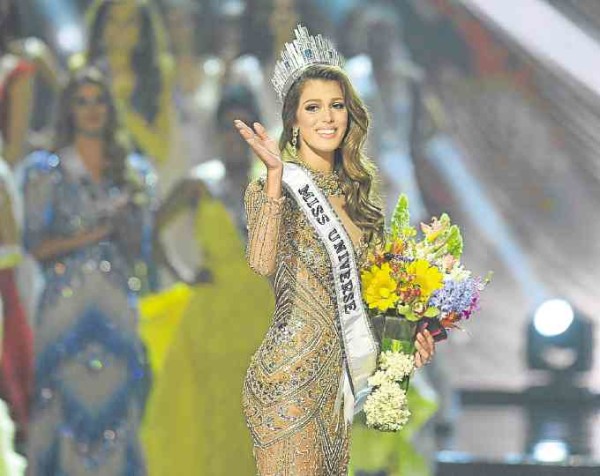
Miss Universe Iris Mittenaere —AFP
Only three Miss Universe titleholders had the privilege of wearing the crown including Paulina Vega of Colombia in 2014, Pia Wurtzbach of the Philippines in 2015, and France’s Iris Mittenaere in 2016.
The Power of Unity crown (2019 to 2022)
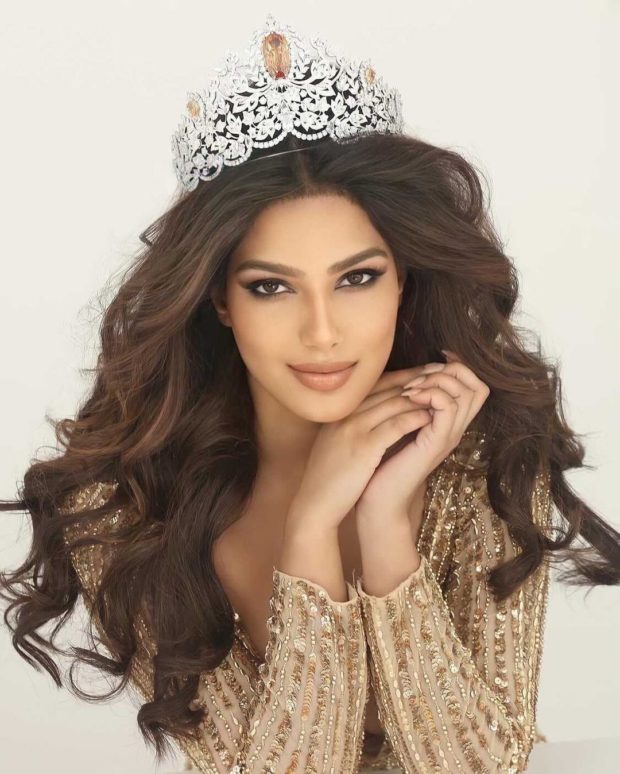
Miss Universe 2021 Harnaaz Sandhu of India. Image: Facebook/Miss Universe
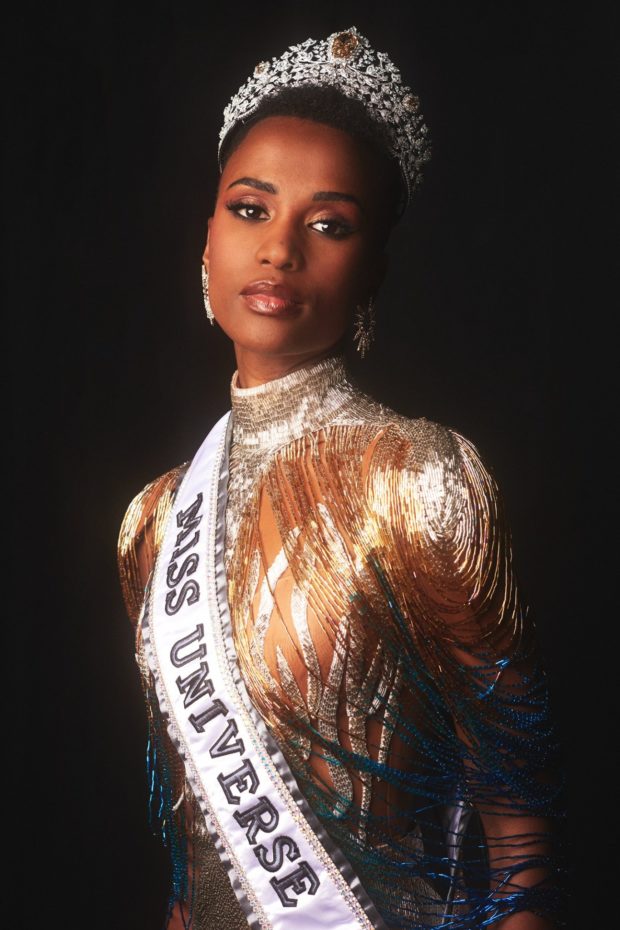
Miss Universe 2019 Zozibini Tunzi of South Africa. Image: Facebook/Miss Universe
A recognizable crown among pageant newbies, the Power of Unity crown was designed by Lebanese jewelry company Mouawad. The golden headpiece, valued at $5 million (P274 million) has been worn by Zozibini Tunzi of South Africa in 2019, Andrea Meza of Mexico in 2020, and current titleholder Harnaaz Sandhu of India.
The Force for Good crown (2022)
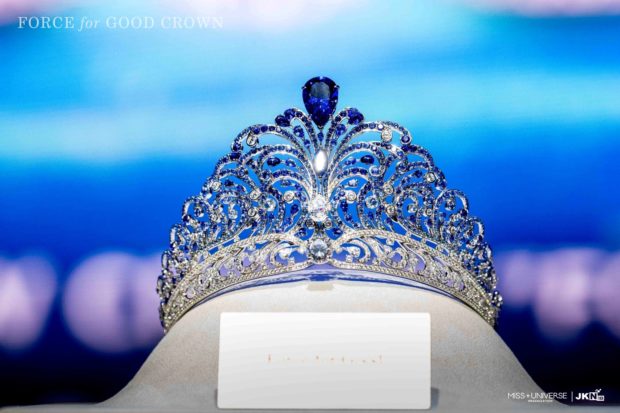
The Force for Good crown. Image: Facebook/JKN18
A month before the 71st Miss Universe, the MUO revealed the new “Force for Good” crown created by Mouawad at an unveiling ceremony. The intricate headpiece follows a rippling wave design and is composed of 110 carats of blue sapphires and 48 carats of white diamonds. — JMS